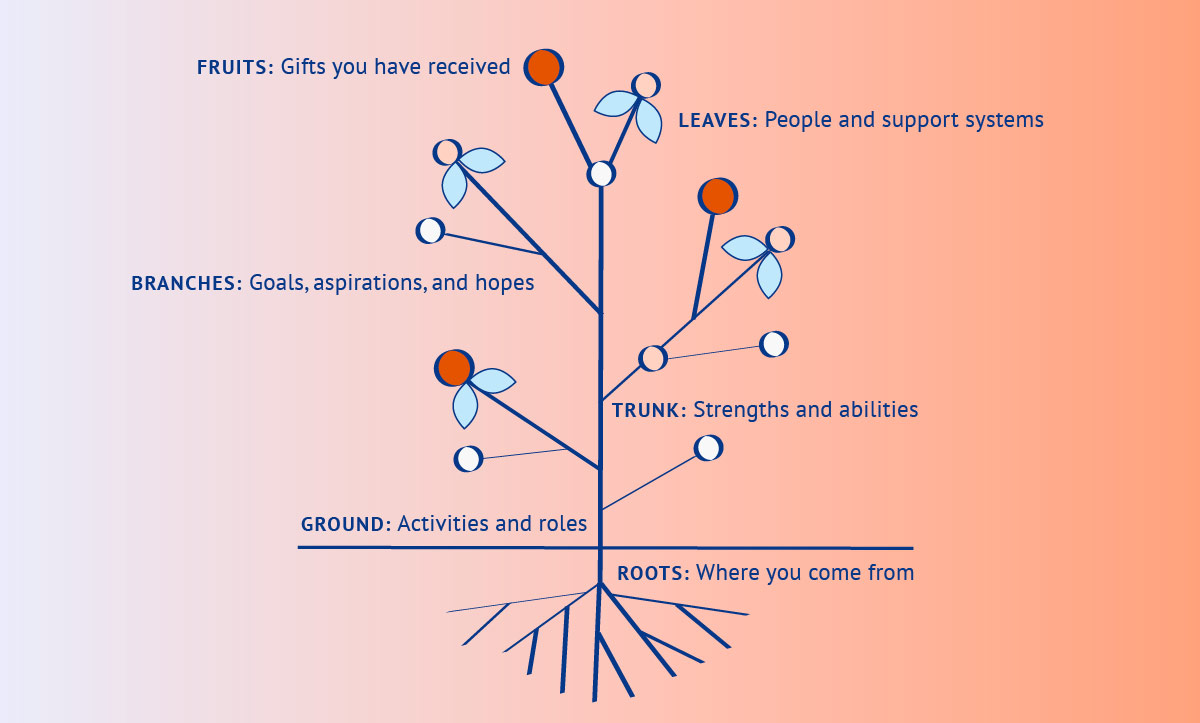How to Find Your Purpose and Passion in Life Using Career Psychology

When Yas (Djadali) Hardaway set out to pursue her master’s degree, career counseling wasn’t on her radar. But a graduate assistantship at her school’s career center coupled with training and mentoring from internationally recognized career development practitioners and researchers pushed her to rethink her initial plans of working for a mental health organization and consider a different calling. Today, Hardaway serves as executive director of career services at Pepperdine University’s Graduate School of Education and Psychology and teaches Career Development Theories and Techniques for the school’s online master’s in psychology program.
“The reason I chose career development is because it’s still counseling, and I get to help people figure out how they want to contribute in this world,” Hardaway said. “It allows me to work with students from a place of empowerment and encouragement and to help them figure out what their gifts are, what’s natural for them, what they aspire to do, and how to help them actualize that.”
Pointing to the work of psychologist David Blustein, Hardaway acknowledges that not everyone who seeks career counseling has the privilege of occupational choice. Working can allow for self-determination, or finding your purpose or calling in life, but many people are limited by economic constraints or find working as a means of developing social connection.
“I really have to clarify where the client is and what their context is,” Hardway said. “I have to recognize that some people’s situation might call for a more immediate triage or that their intentions for finding work may not be about meaning and purpose at this point.”
There are other life roles that can provide meaning and purpose when work is not a priority. Furthermore, Bluestein recognizes that caregiving is also a form of work.
For those who desire and can pursue meaningful work, Hardaway’s decades of experience in the career development field have enabled her to help people better understand their purpose and pursue jobs that can lead to fulfillment.
Are you considering what the next step in your career should be? Hardaway shares a number of activities and tools below that can help you find your calling.
Discover online psychology master’s programs from Pepperdine Graduate School of Education and Psychology.
Consider Where You Are in Your Career and Where You Want to Go
Pursuing your passion can look different for everyone, and the steps you need to take can depend on where you are in your career.
According to Hardway, career counseling can help you do the following:

Make a career transition, which could involve changing your role, industry or employer.

Advance in your career by repositioning yourself for a promotion.

Clarify the next step in your career if your current situation feels unfulfilling or temporary.

Navigate workplace issues such as intra/interpersonal dynamics and organizational culture.

Launch your own business or practice by connecting to community resources and mentors who can support success.
How to Use Career Development Theories and Assessments
Finding your calling requires reflection. The first question that Hardaway has for somebody who comes to her expressing interest in the field of psychology is, “What drew you or attracted you to the field?” For some, it may be the opportunity to provide direct services. Others may be more interested in researching or teaching the subject.
It’s important for people to consider how they plan to engage with a potential field, such as pursuing psychology in order to explore the diverse applications of the study across a variety of employment settings. They also need a strong sense of self in order to ensure that the path they are taking will provide them meaning. To help them in their exploration, Hardaway uses a number of techniques.
The Career Construction Interview Return to jump links
The Career Construction Interview, developed by Mark Savickas, is designed to help people better understand themselves and author their own stories so that they can decipher how they want to contribute to this world.
“Because the workplace is changing so rapidly, if we lose our job, we often lose this sense of identity,” Hardaway said. “But if we can connect to a narrative that is a common thread that runs through our life, then we’ll be able to repackage ourselves in a different context and adapt more easily.”
Questions to consider in the Career Construction Interview:
Who are your role models?
Your role models reflect your self-concept. They represent who you identify with. The traits that you describe in your role models are traits that you have or aspire to.
What magazines, TV shows, or websites do you frequent and why?
These represent your manifested interests. What would you do if you had free time and what do you naturally gravitate toward? This provides information about what settings or work environments you’re drawn to.
What’s your favorite current story from a film or from a book?
This question helps explain how you see yourself in the next chapter of your career. We often tell ourselves the stories that we need to hear. You may identify with a character because they reflect what you want to do next.
What’s your favorite motto or saying?
A motto reflects the advice that we give to ourselves in order to move forward during transition. What advice would you give to yourself to enact the script in your favorite story?
What are your three earliest recollections?
These recollections can reflect your current perspective on the problem and the transition that you’re facing. The stories that you selectively retrieve often reflect what you’re struggling with and what your potential solution is.
“At the end, we’re able to co-construct this narrative that our client can then re-author,” Hardaway said.
And the narrative helps them understand who they are and how to move forward in the next chapter of their careers. It’s also something that a client can take with them no matter what changes in the workplace.
Is psychology the right career for me? Although there are no correct answers to these interview questions, Hardaway says that responses that highlight social relationships, a desire to help others, curiosity about people, and investigative problem solving could indicate that this is a field to explore.
The Tree of Life
Another narrative approach that Hardaway says can help people as they try to understand their purpose and find their calling is the Tree of Life exercise. In this exercise, people visualize how their past, present, and future connect by drawing a tree which serves as a metaphor for their life experiences.

- The roots represent where they come from.
- The ground represents their current activities and roles.
- The trunk represents their strengths and their abilities.
- The branches represent their goals, aspirations, and hopes.
- The leaves represent the important people in their life and their support systems.
- The fruits represent gifts that other people have given them, tangible or inspirational.
“When I think about finding your calling, it’s [about] how do I connect the dots in my life in order to be able to clarify what my next chapter is?” Hardaway explained.
Again, this approach allows people to author their own story and encourages journal reflection in order to help them think about their next steps. It also recognizes and honors the multiple identities that make us who we are.
Questions that those who use this activity are asked to reflect on include:
- What was your experience constructing your tree of life? Were there any observations, insights or challenges that you had?
- Consider some of the storms of your life, or challenging experiences, and the impact they have had on you personally and professionally. Are there any skills from your trunk that are related to or helped you manage your storms?
- Who would benefit from the skills identified in your trunk and in what settings?
- Consider the leaves that affected you as you navigated the storms of your life. How can you impact others moving forward?
- Identify three professional goals from your branches. Over the next week, what will be your first step toward achieving that goal? What resources and support do you need?
Happenstance Learning Theory
While part of our lives can be planned, unexpected situations also offer opportunities. Happenstance Learning Theory, a model of career counseling rather than a specific activity, facilitates a consistent state of learning by encouraging people to maintain curiosity and take advantage of the unforeseen opportunities and life situations that they encounter.
“Happenstance isn’t about just sitting back and letting life happen because it’s unpredictable,” Hardaway explained. “It’s putting yourself in a position and taking actions which will allow you to gather more information and lead to more opportunity.”
How the theory’s components of counseling might apply to graduate pursuit:
Identify what you know.
Example: I loved my undergraduate psychology course.
Determine actions that you can take to gather more information.
Example: Research graduate programs or speak to current students or faculty.
Reflect on what you have learned from the event and what follow-up actions can be taken to learn more.
Example: The courses sounded interesting. I should sit in on a class to see whether I would enjoy the program.
“I try to stop people from feeling pressure to make a decision and focus more on exploring than decision-making, because you can always commit to exploring,” Hardaway said.
Setting a timeline or parameters around the exploration period can help people feel more comfortable putting themselves in these situations. So, Hardaway may encourage a client to take a month as an exploration period to determine what activities can help provide insight into whether something will be a good fit for them.
“I guarantee you, by the end of that month, you’re going to know more than you do now,” she said, “and it might lead to directions that you hadn’t thought about. And that’s okay, too.”
For those who have multiple life responsibilities or whose employment situation calls for greater urgency, exploration activities need to be manageable and time sensitive.
Myers-Briggs Type Indicator
One of the more well known psychological assessments, the Myers-Briggs Type Indicator (MBTI) can help people identify personality preferences. Rather than using this kind of assessment to identify the exact jobs that people should be matched with, Hardaway believes that the MBTI can help provide clues about which work activities or work environments they may be better suited for.
“If you can identify what work activities are a natural extension of your personality and what work environment reflects values in which you would thrive in, then that becomes your criteria for discerning whether or not something’s a good fit,” Hardaway said. “It also illuminates why you might be miserable somewhere.”
By better understanding themselves, people can be more intentional about looking for opportunities. So if you’re a very big-picture person who is more conceptual and is energized by people, you can avoid crunching numbers in a cubicle.
However, Hardaway also cautions that assessments like the MBTI offer generalizations and don’t take into account how different personality types can fit into the field based on varying specializations of the profession. For example, two different MBTI “types” might both be drawn toward psychology but have a different motivation for pursuing this field, or a different theoretical orientation that resonates—so don’t worry if you don’t fit an exact “type” that is most often associated with the field of psychology or counseling.
The MBTI is one of a number of career assessments that prompt self-reflection. Other assessments that you can use include:
How to Find a Career You Love
Finding your calling or your purpose can be an overwhelming task, so Hardaway advises to start small.
“Start with what you do know and outline what a small step is that would give you more information and clarity,” she said.
You don’t have to know where something is going to take you in order to explore or learn. Pursuing a direction that you didn’t anticipate is part of life.
“So if you’re interested in psychology and you enroll in a graduate program and you decide not to be a clinician, you’re still going to use psychology because you’re living in a world with people,” she said. “And if you choose to pursue a different path, it’s going to give you a unique perspective and an understanding of how to work with and motivate other people.”
Take the Next Step to Find a Career You Love
Discover online psychology master’s programs from Pepperdine Graduate School of Education and Psychology.
Citation for this content: OnlinePsychology@Pepperdine, the Online Master of Psychology program from Pepperdine University.

